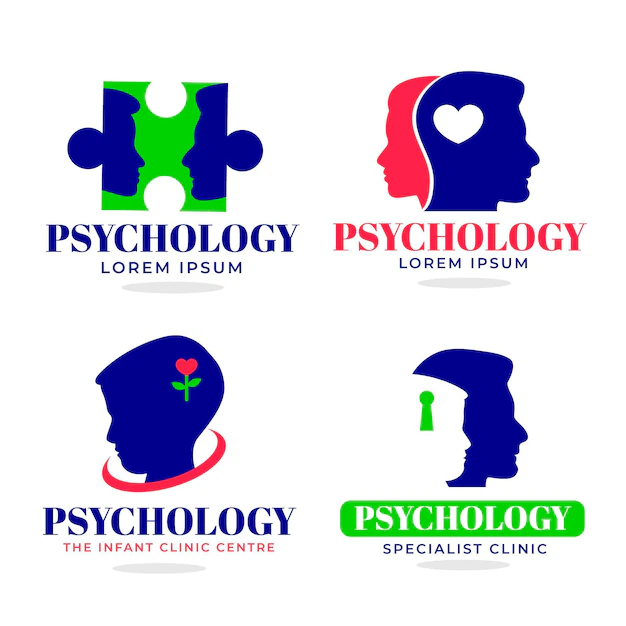Embracing the Significance of Self-Care and Nurturing the Soul in Today’s World

In the midst of our fast-paced and demanding lives, it’s easy to overlook the importance of self-care. We often prioritize our responsibilities, commitments, and obligations, neglecting the very foundation of our well-being: ourselves. However, self-care is not merely a luxury or indulgence; it is a fundamental necessity for leading a fulfilling and balanced life.

Page Contents
- 1 Embracing the Significance of Self-Care and Nurturing the Soul in Today’s World
- 2 A> Traveling can offer numerous benefits for self-care, providing opportunities for relaxation, rejuvenation, and personal growth.
- 3 Here are 2 key benefits:
- 4 B> Profound and Far-reaching
- 5 1. Prioritizing Physical Well-being
- 6 2. Cultivate Resilience and Emotional Balance
- 7 3. Nurtures Spiritual Well-being
- 8 4. Establishing Healthier Social Dynamics
- 9 5. A Radical Act of Self-Love and Self-Respect
- 10 Group Bible study can offer numerous benefits for self-care, fostering holistic well-being in various aspects of life. Here are some of the key benefits:
- 11 Here’s a list of 30 nutrient-rich foods that can contribute to overall physical health:
- 12 Conclusion
Embracing the Significance of Self-Care and Nurturing the Soul in Today’s World


A> Traveling can offer numerous benefits for self-care, providing opportunities for relaxation, rejuvenation, and personal growth.

Here are 2 key benefits:
- Stress Reduction: Traveling allows individuals to escape from their daily routines and immerse themselves in new environments, reducing stress and promoting relaxation. Whether it’s lounging on a tropical beach, exploring a picturesque countryside, or indulging in a cultural excursion, travel provides a much-needed break from the demands and pressures of everyday life.
- Physical Well-being: Traveling often involves physical activity, whether it’s hiking in nature, walking through historic sites, or engaging in water sports. These activities promote physical fitness, improve cardiovascular health, and boost overall well-being. Additionally, travel provides opportunities to disconnect from digital devices and enjoy the outdoors, encouraging individuals to prioritize self-care and movement.
In summary, traveling offers a multitude of benefits for self-care, including stress reduction, physical well-being, mental and emotional health, and cultural enrichment. By stepping outside of their comfort zones and embracing new experiences, individuals can rejuvenate their minds, bodies, and spirits, fostering holistic well-being and personal growth.
B> Profound and Far-reaching
At its core, self-care encompasses a wide spectrum of activities, practices, and habits that prioritize one’s physical, mental, emotional, and spiritual well-being. It involves nurturing oneself on all levels, fostering a deep sense of self-awareness, compassion, and inner peace. While the concept of self-care may seem simple, its significance is profound and far-reaching.
1. Prioritizing Physical Well-being

First and foremost, self-care is essential for maintaining optimal physical health. Engaging in regular exercise, eating nutritious foods, staying hydrated, and getting adequate rest are vital components of self-care. By prioritizing our physical well-being, we can enhance our energy levels, boost our immune system, and reduce the risk of illness and burnout.
2. Cultivate Resilience and Emotional Balance
Moreover, self-care plays a crucial role in preserving our mental and emotional health. In today’s fast-paced and stress-filled world, it’s all too easy to become overwhelmed by the pressures of work, relationships, and daily responsibilities. Taking time for self-care allows us to recharge and rejuvenate our minds, alleviating stress, anxiety, and depression. Whether it’s through meditation, mindfulness practices, or simply setting aside time for relaxation, self-care provides us with the tools to cultivate resilience and emotional balance.
3. Nurtures Spiritual Well-being

Furthermore, self-care fosters a deeper connection with ourselves and nurtures our spiritual well-being. It encourages us to listen to our inner voice, honor our needs and desires, and align with our values and purpose. By engaging in activities that nourish our soul—whether it’s spending time in nature, practicing gratitude, or engaging in creative expression—we can cultivate a sense of wholeness and fulfillment.
4. Establishing Healthier Social Dynamics



Additionally, self-care enables us to cultivate healthier relationships with others. When we prioritize our own well-being, we are better equipped to show up fully for those we care about. By setting boundaries, practicing effective communication, and prioritizing our needs, we can establish healthier dynamics and foster deeper connections with others.
5. A Radical Act of Self-Love and Self-Respect
In essence, self-care is a radical act of self-love and self-respect. It is not selfish or indulgent; rather, it is an essential foundation for living a purposeful and meaningful life. By prioritizing our own well-being, we become better equipped to navigate life’s challenges, pursue our dreams, and contribute positively to the world around us.
Group Bible study can offer numerous benefits for self-care, fostering holistic well-being in various aspects of life. Here are some of the key benefits:
- Community Support: Group Bible study provides a supportive community where individuals can connect, share, and grow together spiritually. This sense of belonging and fellowship can promote feelings of acceptance, love, and support, enhancing emotional well-being.
- Stress Reduction: Engaging in group Bible study allows individuals to focus on spiritual matters, providing a reprieve from the stresses and pressures of everyday life. Reflecting on God’s promises and wisdom can bring comfort, peace, and perspective, reducing stress and anxiety.
- Emotional Healing: Group Bible study offers a safe space for individuals to express their thoughts, feelings, and struggles. Through sharing and prayer, participants can experience emotional healing, finding solace in God’s love, grace, and forgiveness.
- Personal Growth: Studying the Bible in a group setting encourages personal growth and spiritual development. Through discussions, reflections, and insights from others, individuals can deepen their understanding of Scripture, strengthen their faith, and mature spiritually.
- Accountability: Group Bible study provides accountability and encouragement for individuals to stay committed to their spiritual journey. Sharing goals, challenges, and victories with others fosters accountability and motivation, helping individuals stay focused on their relationship with God and their personal growth.
- Prayer Support: Group Bible study offers opportunities for prayer and intercession, allowing individuals to lift up their needs, concerns, and joys to God collectively. Praying together builds unity, strengthens faith, and provides comfort and assurance in God’s presence and provision.
- Encouragement and Inspiration: Participating in group Bible study can be uplifting and inspiring as individuals share testimonies, insights, and encouragement with one another. Hearing how God is working in the lives of others can renew hope, faith, and perseverance, uplifting the spirit and nourishing the soul.
- Sense of Purpose: Group Bible study helps individuals connect with God’s purpose for their lives, guiding them in living out their faith with intentionality and purpose. Studying Scripture together reinforces the importance of serving others, sharing God’s love, and making a positive difference in the world.
- Sense of Belonging: Group Bible study fosters a sense of belonging to the larger body of Christ, transcending individual differences and fostering unity in diversity. Regardless of background, age, or life stage, participants can find common ground in their shared faith and commitment to growing together in Christ.
- Hope and Encouragement: Group Bible study provides hope and encouragement through the promises of God’s Word. Studying Scripture together reminds individuals of God’s faithfulness, goodness, and sovereignty, instilling hope and confidence in His plans and purposes for their lives.
In summary, group Bible study can be a powerful tool for self-care, offering spiritual nourishment, emotional support, and relational connection. By participating in a community of faith, individuals can experience growth, healing, and renewal as they journey together in their walk with God.
Here’s a list of 30 nutrient-rich foods that can contribute to overall physical health:
- Salmon: Rich in omega-3 fatty acids, protein, and vitamin D, salmon supports heart health and brain function.
- Leafy Greens (Spinach, Kale, Swiss Chard): Packed with vitamins A, C, K, and folate, leafy greens are essential for healthy bones and immune function.
- Blueberries: High in antioxidants and fiber, blueberries promote heart health and may improve cognitive function.
- Quinoa: A complete protein source, quinoa is also rich in fiber, iron, and magnesium, supporting muscle function and digestion.
- Avocado: Loaded with healthy fats, fiber, and potassium, avocados are beneficial for heart health and skin hydration.
- Sweet Potatoes: Packed with vitamins A and C, potassium, and fiber, sweet potatoes support immune function and digestion.
- Greek Yogurt: High in protein and probiotics, Greek yogurt promotes gut health and may aid in weight management.
- Broccoli: Rich in vitamins C and K, folate, and fiber, broccoli supports bone health and may reduce the risk of cancer.
- Almonds: A good source of healthy fats, protein, and vitamin E, almonds support heart health and may lower cholesterol levels.
- Oats: High in fiber and antioxidants, oats help regulate blood sugar levels and promote digestive health.
- Eggs: A complete protein source, eggs are also rich in vitamins D and B12, supporting bone health and brain function.
- Berries (Strawberries, Raspberries): High in antioxidants and fiber, berries support heart health and may reduce inflammation.
- Chia Seeds: Packed with fiber, omega-3 fatty acids, and protein, chia seeds support digestion and may aid in weight loss.
- Salad Greens (Arugula, Romaine): Low in calories and high in vitamins and minerals, salad greens support overall health and hydration.
- Oranges: Rich in vitamin C and fiber, oranges support immune function and may reduce the risk of chronic diseases.
- Chicken Breast: A lean source of protein, chicken breast supports muscle growth and repair.
- Cottage Cheese: High in protein and calcium, cottage cheese supports bone health and muscle recovery.
- Tuna: Rich in protein and omega-3 fatty acids, tuna supports heart health and brain function.
- Tomatoes: Packed with vitamin C and antioxidants, tomatoes support heart health and may reduce the risk of cancer.
- Black Beans: High in fiber and protein, black beans support digestive health and blood sugar control.
- Walnuts: Rich in omega-3 fatty acids and antioxidants, walnuts support heart health and brain function.
- Brown Rice: A good source of fiber and complex carbohydrates, brown rice supports energy levels and digestive health.
- Brussels Sprouts: High in vitamins C and K, folate, and fiber, Brussels sprouts support bone health and may reduce inflammation.
- Carrots: Packed with beta-carotene and fiber, carrots support eye health and may reduce the risk of chronic diseases.
- Greek Yogurt: High in protein and probiotics, Greek yogurt promotes gut health and may aid in weight management.
- Pumpkin Seeds: Rich in protein, iron, and magnesium, pumpkin seeds support heart health and may reduce inflammation.
- Whole Grain Bread: High in fiber and complex carbohydrates, whole grain bread supports digestive health and provides sustained energy.
- Mushrooms: Packed with vitamins and minerals, mushrooms support immune function and may reduce the risk of chronic diseases.
- Bell Peppers: Rich in vitamin C and antioxidants, bell peppers support immune function and may reduce inflammation.
- Tofu: A plant-based source of protein, tofu is also rich in calcium and iron, supporting bone health and muscle function.
Incorporating these nutrient-rich foods into your diet can help support overall physical health and well-being. Remember to maintain a balanced diet and consult with a healthcare professional for personalized nutrition advice.
Conclusion
In conclusion, the significance of self-care cannot be overstated. It is a transformative practice that nourishes the body, mind, and soul, enabling us to lead lives of vitality, balance, and fulfillment. In today’s hectic and demanding world, let us remember to prioritize our own well-being, for in caring for ourselves, we cultivate the resilience, strength, and joy needed to thrive.






